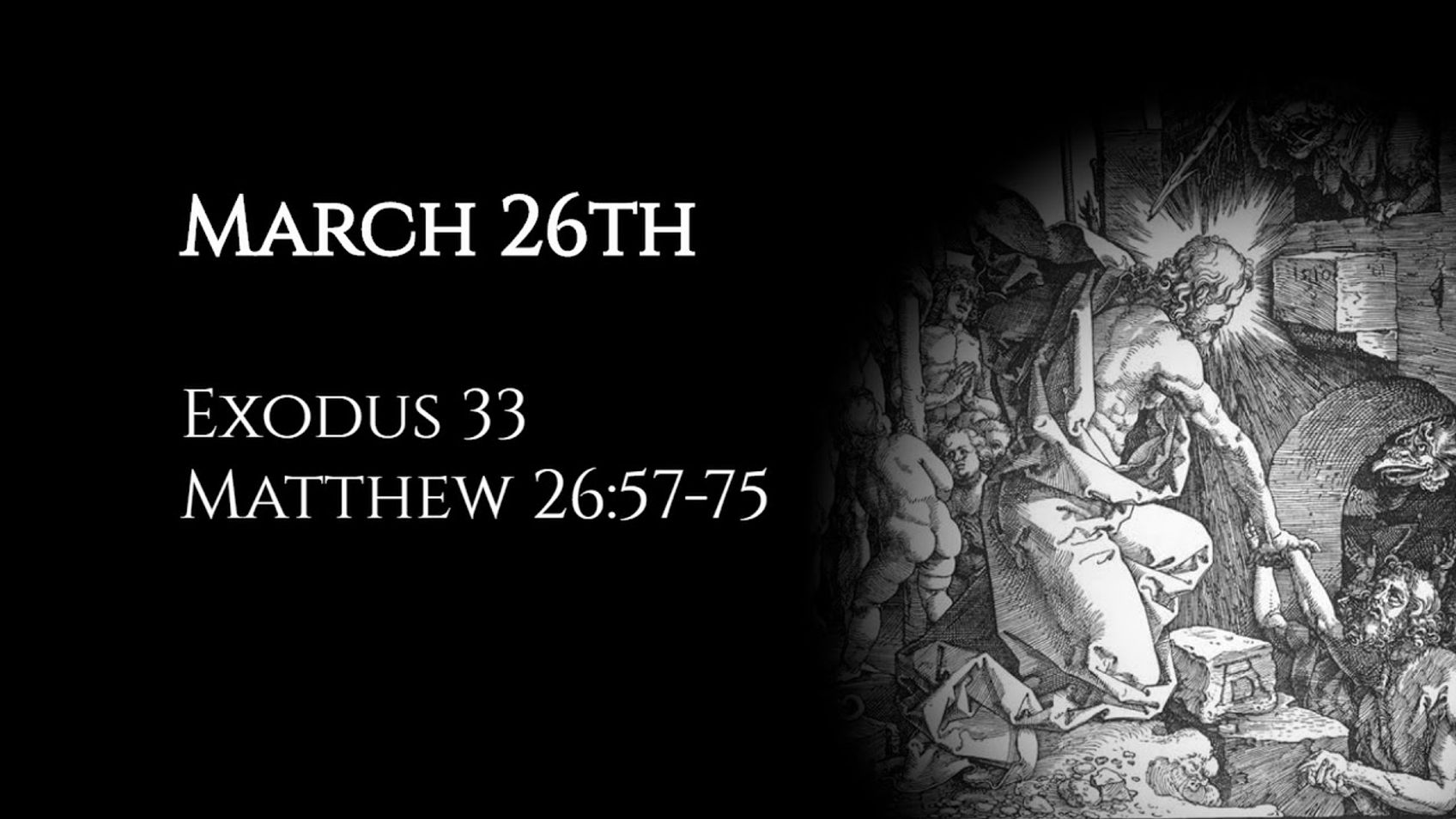March 26th: Exodus 33 & Matthew 26:57-75

Moses intercedes for Israel. The trial of Jesus and Peter.
Some passages referenced:
Exodus 30:11-16 (atonement for the numbered persons, lest there be plague); Genesis 6:8 (Noah finding favour in the eyes of the Lord).
Matthew 12:6 (something greater than the temple is here); Acts 6:13-14 (the charge against Stephen concerning Jesus’ threat to the temple); Jeremiah 7:1-15 (Jeremiah’s challenge to the temple); John 2:19-21 (destroy this temple and I will raise it in three days); Isaiah 53:7 (as a sheep before its shearers is silent); Matthew 27:39-42 (the accusations against Jesus repeated while he is on the cross); Daniel 7:13-14 (the vision of the Son of Man); Leviticus 21:10 (the high priest not to tear his clothes); Isaiah 50:6 (I hid not my face from disgrace and spitting); Matthew 5:39 (turning the other cheek).
Reflections upon the readings from the ACNA Book of Common Prayer (http://bcp2019.anglicanchurch.net/).
If you have enjoyed my output, please tell your friends. If you are interested in supporting my videos and podcasts and my research more generally, please consider supporting my work on Patreon (https://www.patreon.com/zugzwanged), using my PayPal account (https://bit.ly/2RLaUcB), or by buying books for my research on Amazon (https://www.amazon.co.uk/hz/wishlist/ls/36WVSWCK4X33O?ref_=wl_share).
The audio of all of my videos is available on my Soundcloud account: https://soundcloud.com/alastairadversaria. You can also listen to the audio of these episodes on iTunes: https://itunes.apple.com/gb/podcast/alastairs-adversaria/id1416351035?mt=2.
More From Alastair Roberts
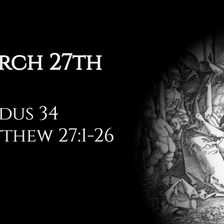
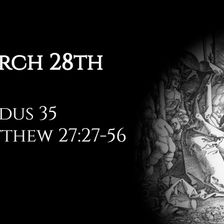
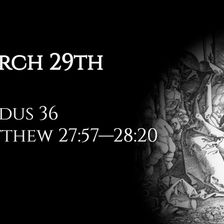
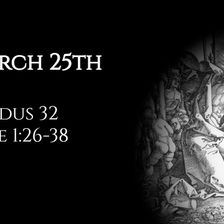
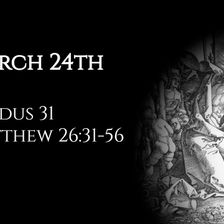
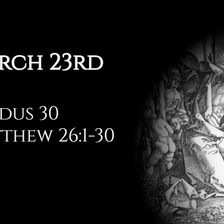
More on OpenTheo















